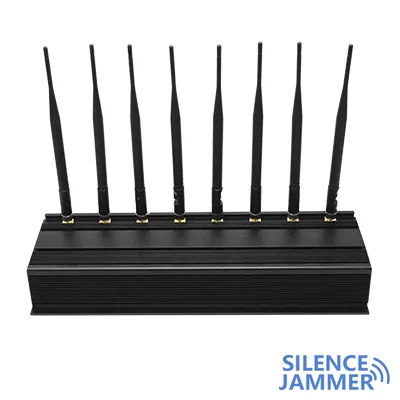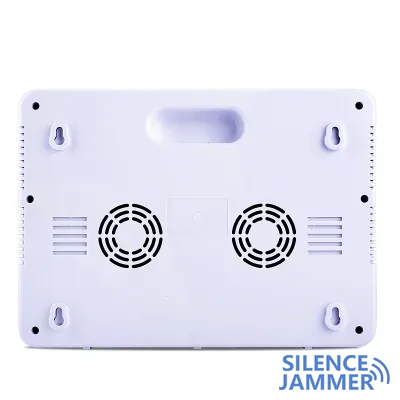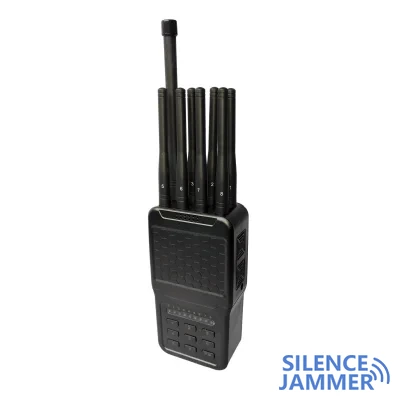The mobile phone signal jammer uses the latest Israeli interference technology to generate a stable magnetic induction signal, covering the mobile communication GSM, CDMA, GPRS, local telephone, and PHS frequency bands, so that the mobile phone can operate in a certain designated location. It cannot be used to solve some of the adverse effects caused by data signals in today’s daily life. So do netizens know how to eliminate blocked data signals?
Detailed introduction to signal jammers on mobile phones:
Currently, the common mobile phone signal jammers on the market have functional working frequencies: 869~894MHz; 925~960MHz; 1805~1880MHz and 1900~1990MHz, etc. The functional frequency bands are CDMA800, GSM900, DCS1800, and PCS1900. It can operate an area with a diameter of 40 meters and uses a DC-DC inverter circuit to input working voltage and output voltage of 5V.
After the release of 3G signals, the working frequency bands of signal jammers on mobile phones currently on the market have also been increased from the previous four frequency bands to five frequency bands. On the basis of the previous four frequency bands, an additional 2100 to 2200 frequency bands have been added. This frequency band is used to block and influence the 3G frequency band. It uses memory overclocking, crossover, frequency hopping filtering and other technologies for the uplink and downlink channels of the mobile phone system to analyze the necessary shielding frequency.
According to the power size of the signal jammer, a ball is made to shield the space, and the electromagnetic field is automatically generated within the specified range, so that mobile phones (including PHS-China Telecom, PHS, GSM-China Unicom, China Mobile, CDMA-China China Unicom) is not valid on mobile phones within this indoor space. When the signal jammer is in operation, it can invalidate the signal receiving and sending functions of mobile phones within a specific range, making it impossible to dial in and out, thus achieving the purpose of forcibly prohibiting use.
How to decipher the signal jammer on your mobile phone:
Decryption method one: Go to the phone settings, click on “Network Connection Settings”, change the network mode to “Manual Mode”, then enter “Website Search” until the words “China Mobile” or “China Unicom” appear. Just pull out immediately. There will be a signal on the mobile phone, but the length of the anti-blocking time depends on the quality of WeChat. This method is available on most mobile phones.
Basic principle: The mobile phone works within a certain operating frequency range. The mobile phone and the communication base station are connected through ultra-wideband, and data and sound are transmitted at a certain serial port baud rate and deployment method. Then the signal jammer transmits to the high-end scanner at a certain rate from the mid- to low-end frequency bands of the wireless channel during the operation process. This scanning rate may cause errors in the packet format signals received by the mobile phone. The mobile phone cannot detect the normal data transmitted from the base station, making the mobile phone unable to establish a connection with the base station. The main symptoms on the mobile phone include network search, poor signal, and no service system.
Decryption method two: use 3G Internet.
Deciphering method three: Use Bluetooth: Document the answer on your mobile phone. Use Bluetooth to send files.
Deciphering method four: Use wireless network (alias wifi or wlan).
Decryption method five: Use another working frequency to destroy the working frequency of the shielding device.












